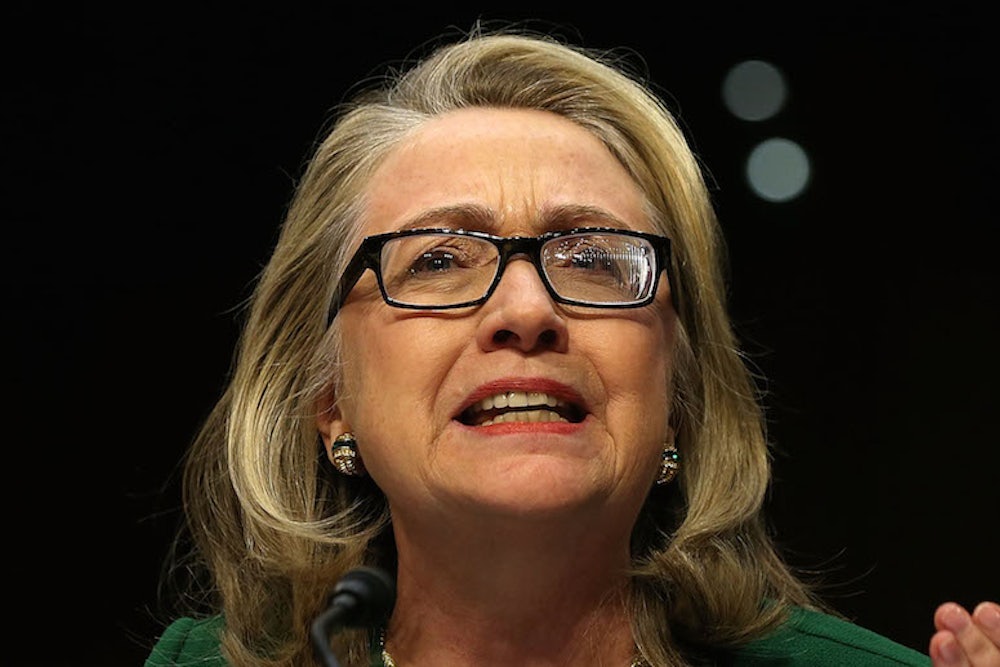It is by sheer coincidence that just as Obamacare recedes as an issue, House GOP leaders have announced their intent to create a Select Committee on Benghazi—something they've long resisted—and that Oversight Committee Chairman Darrell Issa, perhaps overcome by zeal to maintain control over the issue, subpoenas Secretary of State John Kerry to testify about the 2012 attack—despite the fact that Kerry was a senator at the time, and hasn't been invited to testify, and is currently visiting Sudan.
The pretext for all this is the release of an email from White House adviser Ben Rhodes, which includes as a bullet point the goal that in speaking about the attack, then-U.N. Ambassador Susan Rice should "reinforce the President and Administration's strength and steadiness in dealing with difficult challenges."
Slate's Dave Weigel did a great job earlier this week of placing the email in chronological context, to discredit the argument that the email represents evidence of a "coverup." And while it might appear a bit unseemly for administration officials to be concerning themselves with the president's image and the administration's competence in the midst a crisis … this is actually completely uncontroversial. Would John Boehner and Darrell Issa have preferred it if Susan Rice went on TV that week and granted that the administration was in complete disarray? Or had refused to take a position on the administration's handling of the situation?
But all of this underscores a core fact about the Republican Party that Democrats ought to take seriously, particularly given how roundly they've turned the GOP's Benghazi obsession into a punchline.
My basic theory of today's developments is that the right demands an untenable relentlessness from Republicans vis a vis Obamacare, and so they're using Benghazi to fill the gap, and stem the backlash.
But even if that's wrong, I think the developments also suggest that Republicans aren't going to let Benghazi go, unless and until they find that it doesn't serve as a liability for Hillary Clinton, who was secretary of state at the time of the attack.
And while we know that the conspiracy theory that sparked and sustains Benghazimania has been debunked, we don't know whether the right's obsession with it will become a real hinderance for Clinton if she runs for the presidency, or if it will backfire against Republicans.
The reason Benghazi has remained an explosive issue among conservatives is that many of them believe the administration essentially disengaged and allowed people to die to avoid having to acknowledge that Obama had presided over a terrorist attack. Republicans have fed that suspicion.
It's total nonsense. House Armed Services Committee Chairman Buck McKeon effectively acknowledged as much last month when he said, at a roundtable discussion with reporters, "I think I've pretty well been satisfied that given where the troops were, how quickly the thing all happened and how quickly it dissipated, we probably couldn't have done more than we did." He reiterated the same point more forcefully just yesterday.
But if Republicans are serious about working their base into a frenzy over Benghazi, it'd probably behoove liberals to mix a bit more clarity about the events in with the mockery. What's really happening is pretty straightforward. Of all the Americans who've died in dangerous parts of the world over the last decade, Republicans have concerned themselves with Benghazi's four victims, because they think there's political utility in fostering suspicion that the administration was more concerned with the coverup than the attack itself.
